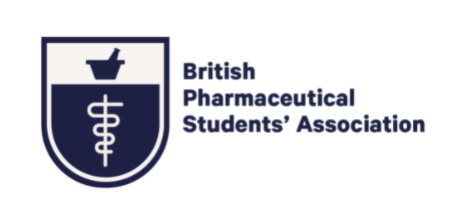Why apply for a split pre-registration training programme?
When the time came to choose a pre-registration place, I asked myself “what kind of pharmacist do I want to become?” I wanted to get experience in a variety of specialties, apply my clinical knowledge, and work with patients who are acutely unwell and clearly benefit from the input of pharmacists. It made sense to seek this in a large teaching hospital. However, I was also interested in the role of pharmacists in primary care. This is a role which has been growing and quickly evolving in the last few years. After some research, I felt a position at a clinical commissioning group (CCG) would appeal to my analytical nature and curiosity about the longer-term management of patients. I found a joint training programme between a teaching hospital and clinical commissioning group which fitted the bill and would deliver the broad experiences I wanted.
When I sought advice on whether to apply, I was met with intrigue and slight caution. This kind of programme isn’t very common and the pharmacists I spoke to weren’t entirely sure. It was a bit of a leap into the unknown for me, but I haven’t looked back and I love my job. I spent the first few months of my pre-reg with the hospital, gaining the core skills for working in acute care. I progressed from observing pharmacy technicians to performing bedside drug locker checks, determining suitability of patient’s own drugs for inpatient use, facilitating pharmacists to process discharge advice notes, and taking medication histories for newly admitted patients. My other roles have included dispensing, medicines information, aseptics, clinical audit, and patient counselling including carrying out a warfarin counselling clinic.
After Christmas, I joined the CCG for four months. I worked with the medicines optimisation team, a group of pharmacists and pharmacy technicians who provide support to general practices and care homes. There’s a focus on managing long-term conditions, reviewing medicines, making treatment recommendations, providing answers to queries from doctors and nurses, quality work to improve prescribing, and safety work to action MHRA alerts and ensure patients get the right monitoring for their treatments. I carried out medicines reconciliation in practices following hospital discharge, ensuring any outstanding recommendations were actioned and necessary follow-up was carried out. I also carried out reviews for polypharmacy patients, care home residents, and other priority patients as highlighted by my supervising pharmacist. This role was a lot more desk-based, either working in GP surgeries or from an office. That might not appeal to everyone, but I appreciated the opportunity to really delve into a patient’s medical records and get a detailed picture of their history.
From that I was able to make the best possible recommendations and optimise their treatment. I really enjoyed this work, and the time and space it gave me to grow professionally. I feel less like a pre-reg and more like a pharmacist with the freedom to make decisions and have an impact. Working in a CCG, I’ve also had the chance to sit in on meetings about public health strategies in the city, specialist clinical working groups, and governance and safeguarding in care homes. This gave me a chance to see what goes on behind the scenes of direct patient care. Also, there’s ample coffee.
I’ve now returned to the hospital to complete my training year. In this final phase of my training, I’m allocated my own ward to cover. Now I’m putting my knowledge of the processes behind pharmaceutical care into action, from patient admission to review, management, and discharge. Having performed medicines reconciliation in primary care, I’ll apply the knowledge and skills I’ve gained from that experience to ensure my patients have a smooth transition once they leave the hospital and my colleagues in primary care will be able to easily pick up where I’ve left off.
I’d strongly encourage applying for a split pre-registration training place. There are a number of models, such as hospital/CCG, community/GP, acute trust/mental health, and hospital/industry. These training programmes let you explore different options for your career, allow you to tailor your year to your interests, and give you something to distinguish yourself from the crowd when it comes to applying for your first job as a pharmacist. By working in different sectors, I have a better understanding of the patient journey through different care providers. Having been at both sides of the discharge process, I have heightened awareness of issues arising from care interfaces, which will strengthen my future practice. My training is shaping me as an independent, forward-thinking and confident pharmacist. I know that when I qualify, I’ve been well-prepared to provide excellent patient care wherever medicine expertise is required.
